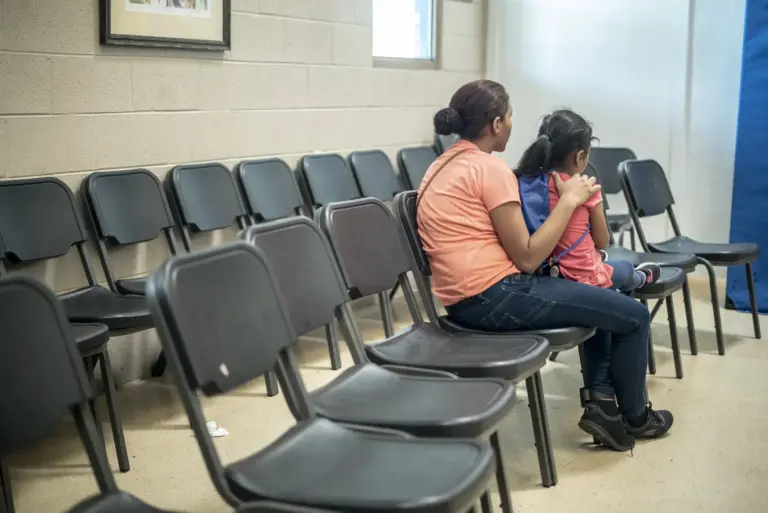Refugees and newcomers are survivors of violence, persecution, and other complex situations that arise before and during resettlement. After long and dangerous migration journeys, many newcomers believe they are finally safe when they arrive in their new communities. However, life in the U.S. is not always free from peril and discrimination. Refugee and newcomer clients may, at times, be exposed to community violence, crime, and other safety issues. Switchboard developed this resource list to enhance service providers’ knowledge of the safety and protection issues that impact clients and to identify beneficial resources to support them. For resources on protection from fraud and scams, see the Federal Trade Commission (FTC) handbook and posters on how to spot, avoid, and report scams, and Switchboard’s guide to Reporting Scams and Fraud to the Federal Trade Commission. For resources on sexual and gender-based violence, see Switchboard’s blog Meeting Newcomers’ Protection Needs Part II. The external resources contained in this blog post represent the views and opinions of their original creators and do not necessarily represent the views or opinions of Switchboard.
Client-Facing Safety and Protection Resources Settle In is available in 12 languages and includes multilingual multimedia resources for refugees and newcomers, as well as direct service providers. Topics related to safety and protection include Rights & Responsibilities, Avoiding Fraud, and Safe Spaces.
Community Violence and Crime
The Office for Victims of Crime (OVC) provides resources and assistance to survivors of crime in the United States. OVC funds programs in multiple areas such as Human Trafficking, Elder Fraud & Abuse, and Terrorism & Mass Violence. Through funding established in the Victims of Crime Act (VOCA), crime victims may be eligible for benefits such as reimbursement of medical services, mental health counseling, and lost wages and other costs incurred due to a crime. OVC operates a service locator to find crime victim assistance and compensation programs in the city/state where the crime occurred. Additionally, OVC facilitates training through the OVC Training and Technical Assistance Center (OVC TTAC). * Refugee-serving organizations may apply for grants through this site to become VOCA programming providers.
Human Trafficking
- The Office on Trafficking in Persons (OTIP) assists individuals who have experienced human trafficking and those at risk. Their website hosts critical resources, including a resource list for individuals from Ukraine (available in Russian and Ukrainian) and a Tip Sheet, Responding to Human Trafficking Among Individuals from Afghanistan.
- The National Human Trafficking Hotline operates a hotline and hosts a website with resources, including an online referral directory to locate anti-trafficking programming that serves victims and survivors of human trafficking in your local area.
- Switchboard’s blog On World Day Against Trafficking, a Resource List of Anti-Trafficking Resources is geared toward providers working to serve children and youth, prevent trafficking and serve victims, and spread awareness about trafficking.
- Framework offers tools to combat labor trafficking, including written materials, videos, recorded webinars, and e-learning courses.
Child-Focused Human Trafficking Resources:
- The National Center for Missing and Exploited Children (NCMEC) is a child protection organization that creates vital resources for survivors of child sexual exploitation and abuse, caregivers, and service providers. They operate a 24-hour hotline and cyber tipline to report child sexual exploitation, and they maintain a list of missing child clearinghouses in each state.
- Switchboard’s webinar Traumatic Stress Among Children and Youth: Responding to Abuse, Exploitation, and Trafficking shares screening tips and practical skills to work with children and youth experiencing or at-risk for abuse, exploitation, and trafficking. Additionally, the blog Combating Child Labor Trafficking: A Resource Collection for Providers Serving URMs and Other Youth provides a helpful list of resources for service providers.
- U.S. Committee for Refugees and Immigrants (USCRI) published a useful toolkit, Safety Planning with Foreign National Children and Youth Survivors of Trafficking, to guide service providers in developing safety plans with youth.
Hate Crimes and Discrimination
- The U.S. Department of Justice Civil Rights Division, investigates discrimination, religious rights and sexual harassment. They provide information about and a hotline to report hate crimes.
- Additionally, the Civil Rights Division administers the Immigrant and Employee Rights (IER) Section, responsible for enforcing federal workplace anti-discrimination laws. They operate hotlines for employers and immigrant workers in English and Spanish with interpretation services for other languages upon request.
Staff Safety, Crisis Intervention, and De-escalation
- Switchboard has several resources on de-escalation, crisis intervention, and staff care that can help refugee service providers, supervisors, and managers stay safe while working with clients experiencing crisis. The following are some highlights from our resource library:
- Webinar: A Trauma-Informed Approach to De-escalation and Crisis Response (2023)
- Guide: Trauma-Informed Care: Preventing Crises and De-escalating Difficult Situations (2020)
- Tool: Safety During Client Home Visits Checklist (2020)
- Blog: What Can We Do to Protect Clients and Staff? Tips for Getting Started with Safeguarding and Protection (2022)
- Guide: Preventing Organizational Hazards by Promoting Organizational Resilience (2020)
- The International Rescue Committee (IRC) has a self-paced e-learning course on De-escalation in Resettlement, Asylum and Integration Settings that can help refugee service providers develop their de-escalation skills.









